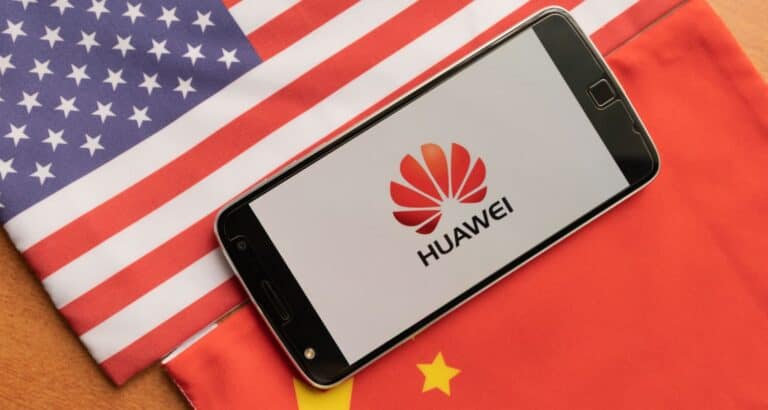Huawei is about to test its latest and most powerful AI processor to date. The Chinese company hopes to offer an alternative to the products of American chip giant Nvidia, according to the Wall Street Journal. This would be a major step toward an independent AI development path for China.
According to insiders, Huawei approached several Chinese tech companies to test the technical feasibility of the new chip, the Ascend 910D. The company expects to receive the first samples of the processor at the end of May. Huawei aims for this new generation of Ascend chips to be more powerful than Nvidia’s H100 model, which has since been replaced by the B100 and other Blackwell chips.
Reuters previously reported that Huawei wants to start large-scale delivery of its advanced 910C AI chips to Chinese customers as early as next month. Chinese chip manufacturers, including Huawei, have been trying for years to catch up with Nvidia in the field of high-end chips, which are essential for training AI models. This process involves using enormous amounts of data to teach algorithms to make better predictions and decisions.
Ban on AI chip exports
The US government is trying to slow down China’s technological development, particularly its military progress. Washington has therefore blocked Chinese parties from accessing Nvidia’s most advanced AI chips, such as the B200. The H100 chip, for example, was banned from sale to China in 2022, even before it was officially launched. It is possible that China will still be able to obtain the chips, either through a third country in Southeast Asia or by transporting them itself via flights.
Export of Nvidia chips has been under fire for some time
Nvidia did not comment on the reports. Huawei also did not provide a direct response to Reuters. Nvidia announced in early April that it was booking a quarterly write-down of approximately $5.5 billion related to the export of certain graphics processors to China and other destinations. That announcement was a strong signal that Nvidia’s exceptional growth could be slowed by stricter export restrictions on its chips.
The US government says the chips could be used in military supercomputers, allowing China to make progress as a potential threat. Under President Biden’s administration, restrictions were imposed on the export of AI chips in 2022. A year later, these were tightened to prevent the sale of more advanced AI processors.
